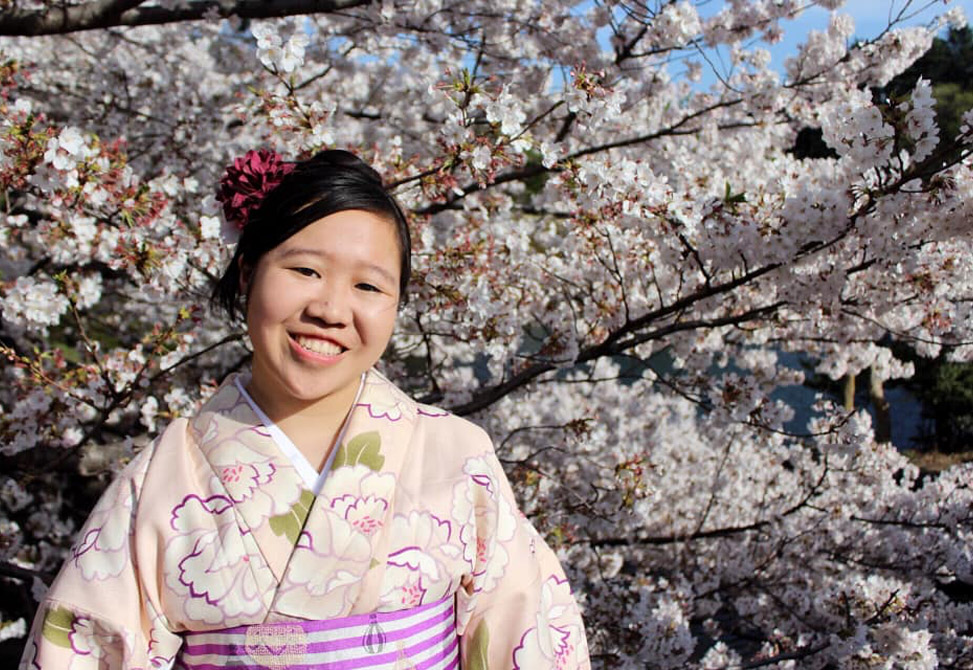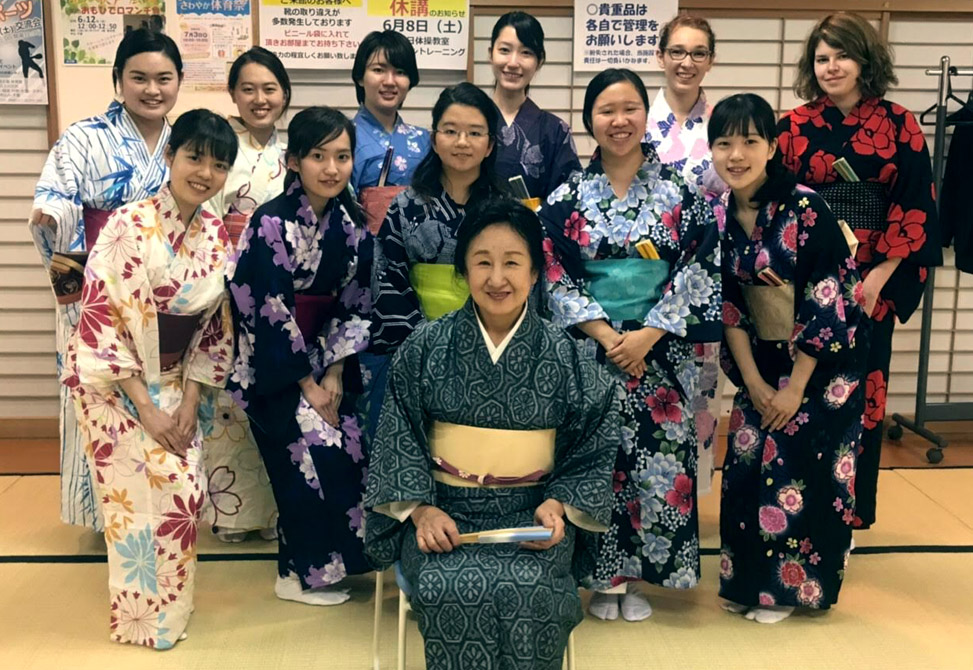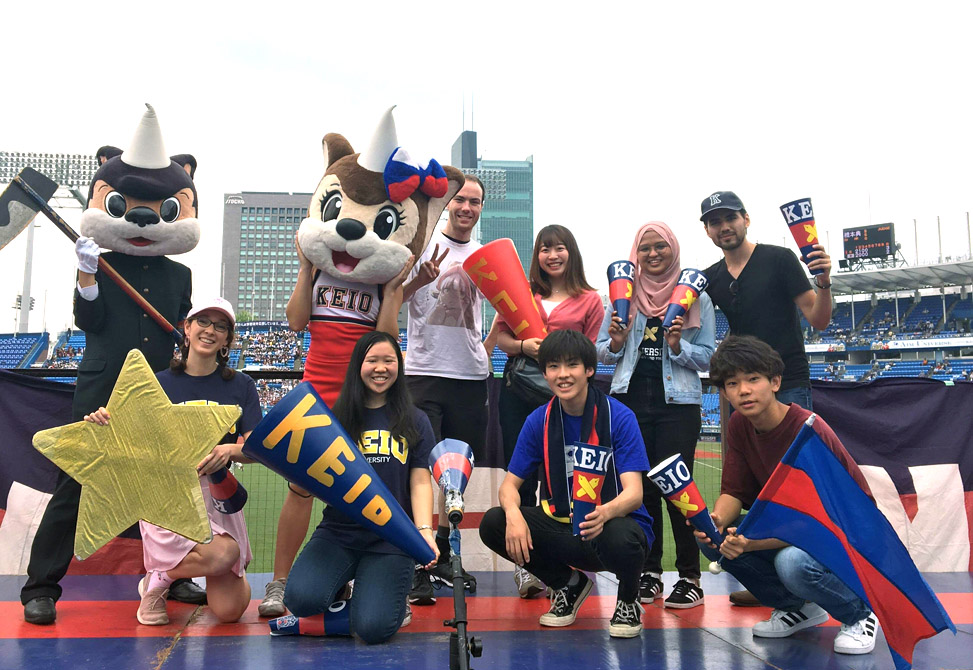Yuna Yoshida
About My Study Abroad Program
Major/Minor: Global Studies and Japanese major
Program: Keio University
Location: Tokyo, Japan
Email: yunay@live.unc.edu
Term: Spring 2019
Why did you choose to study abroad and how did you select your program?
I wanted to improve my Japanese and learn more about the Japanese culture, since my family is Japanese but I had never lived in Japan before. I selected this program, because they had the Japanese Language Program, which focuses on learning the language, which is what I wanted to focus on.
What did you learn about yourself?
I found that I had a westerner's perspective on other cultures; I often had thoughts that America was better in many ways than Japan. Now I know I need to get rid of that mindset so I can explore the world with an open mind. I also learned more about my character. Being put in a whole different country with a whole other culture made me realize that I tend to go with the flow rather than sticking to my own beliefs. Now that I realize this, I want to put in effort to think about myself more.
What is one of your favorite memories from your program?
My favorite memory is the Keio-Waseda baseball game. They had a section just for international students right in front of the cheering section. We all wore Keio shirts and got Keio goods like a folder, fan, and towels. The cheering team taught us the cheers we would be using during the game. The cheering was my favorite part, since they were extremely organized-they had the lyrics up for us, and showed us the hand movements we should do. The songs were catchy and we had different clubs performing while we cheered. I was more focused on the cheering than the actual game!
What advice do you have for future study abroad students?
Get out of your comfort zone and try new things you wouldn't be able to try in America like food, or certain clubs at school. You wouldn't want to regret it when you get back. Try to get the most out of your experience and do all kinds of things, and don't worry about using money if you can afford it. It can be a once-in-a-lifetime opportunity, so I would advise you to do as much as you can while you're there. I was deliberating whether or not I should go diving in Okinawa, since it is a bit on the expensive side. But since I didn't know if I would be able to go there again, I decided to do it and I am glad I did-it was an amazing experience I will forever remember. I also encourage you to join clubs at school-there is a sort of fall fest that they will have at Hiyoshi Campus, so that is a great opportunity to explore the clubs. That can be the main way to meet Japanese students, since you do not take many classes with them. I joined a traditional Japanese dance club, which is something I can't do back in America, and I was able to make great Japanese friends through that, and do something I don't have the opportunity to do in America.
Would you do it again?
Definitely! I am actually trying to look for an internship in Japan next summer, because I loved it so much.
How did your study abroad experience prepare you for your future career?
It improved my Japanese overall, which is necessary if I were to work in Japan in the future. It also introduced me to the cultural differences, so I wouldn't be shocked if I went back again in the future.
How were your classes abroad different than if you would have taken them at UNC?
It is at a faster pace than classes at UNC, and the level is more personalized, since we had to take a test for each level of each specific subject we wanted to take. My reading and writing level is poorer than my conversation level, but the course was able to accommodate me, because of the more specified subjects rather than just general classes at UNC.
How do you identify?
First Generation College Student, Covenant Scholars, Scholarship Recipient
Could you share any experiences where your identity played a role in your time abroad?
I had a sort of identity crisis when I studied in Japan. I have dual-nationality with Japan and America-my family is Japanese, but I grew up in America. When I was in America, I identified as Japanese. However, when I lived in Japan this past semester, I found that I actually had a slight accent and that I am culturally very American. I have an individualistic mindset and I couldn't understand the society-centered mindset of Japan. In Japan, my American identity was more forefront, since when I talked to Japanese people, they knew I was not a native Japanese person, because of my accent and because they said I have a different "atmosphere." So I struggled with whether I was Japanese or American. Now I can say that I am Japanese-American. I realized I don't have to solely identify as one or the other. I can have both identities within myself and be proud of it.
Is there any advice you would give to other students who share your identity?
It can be difficult when on the outside you show a certain identity, when you are much more complex than what first meets the eye. You might have challenges and difficulty relating fully to one or the other nationality and feel as if you don't belong fully in one group. If you are having an identity crisis, just take it slow and remember that it's ok to be complex-that's a positive thing and you have more to offer to both countries. You can become a bridge between the two and have a perspective that many other people don't have. The great thing was that I met so many people through the program that had a similar background as me, which made me feel as if I had a group I could be fully integrated in. We were able to share our experiences with each other and it made me feel I was not alone with these complex thoughts.
If you faced any challenges abroad, where could you turn to get the support you needed?
I could turn to the Japanese teachers here on campus. I know Aratake Sensei has at least one child who also grew up in America and had a similar experience as me in Japan. The teachers could probably provide some advice on things I would like to talk about and sort out.
Memories




